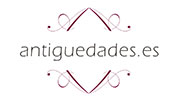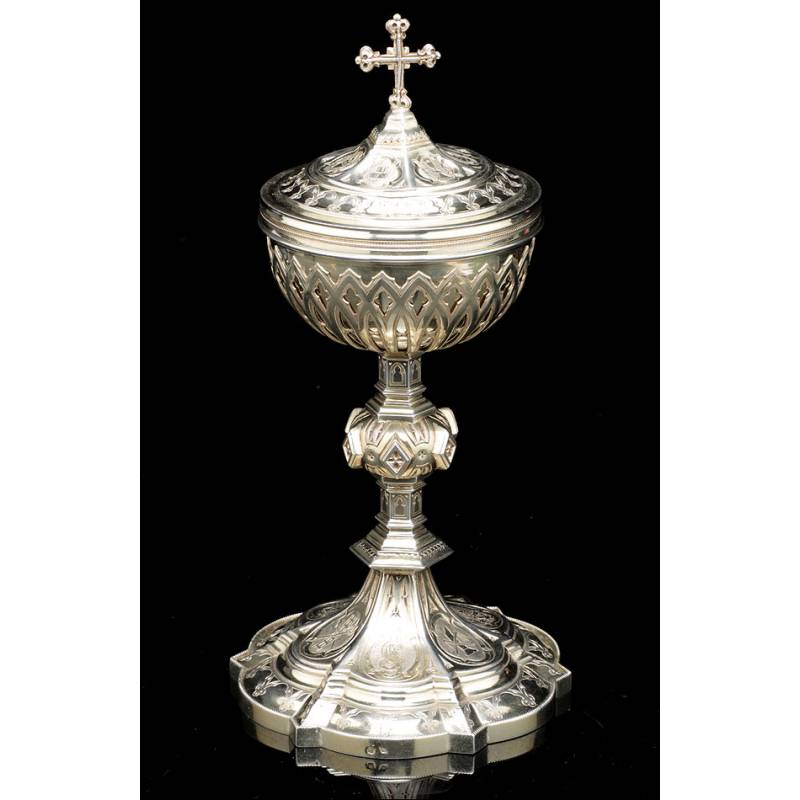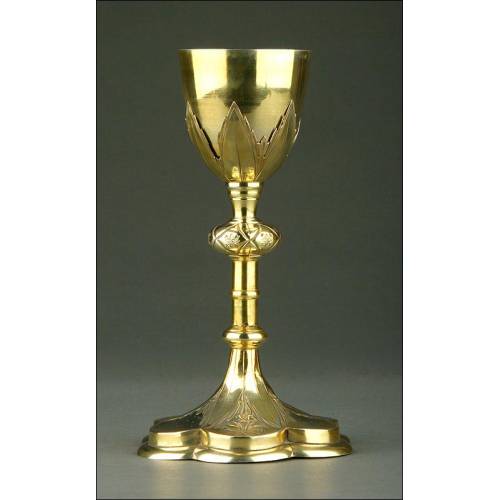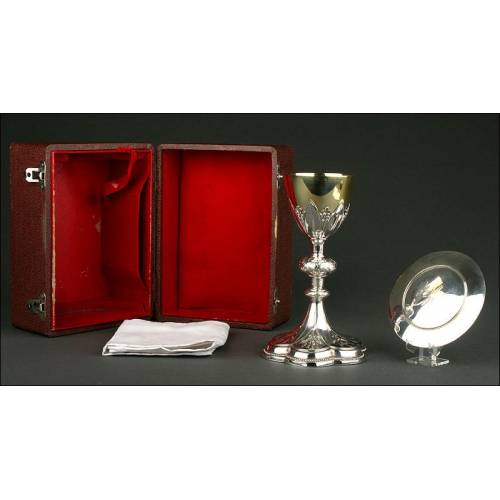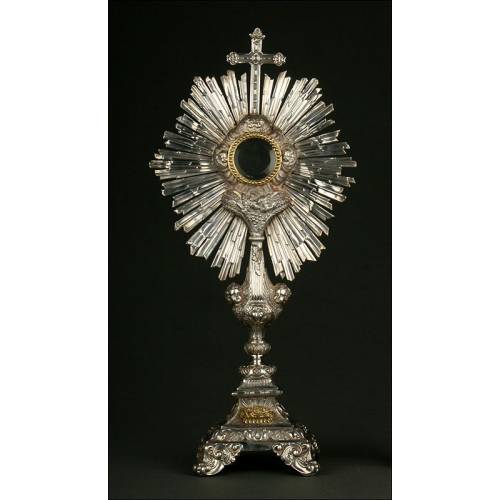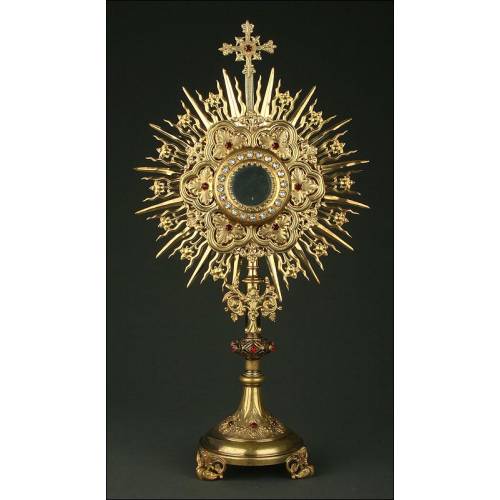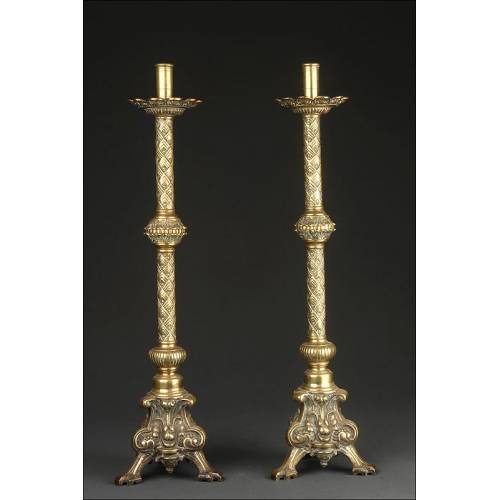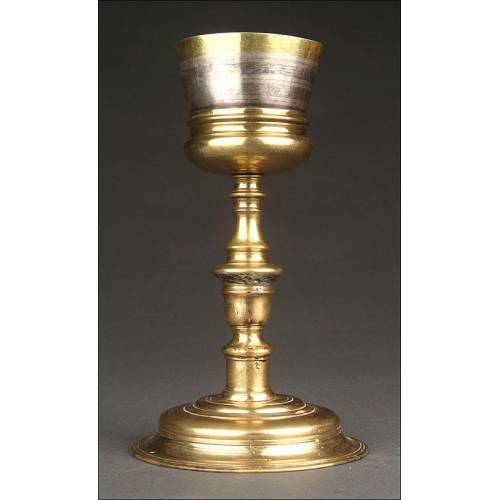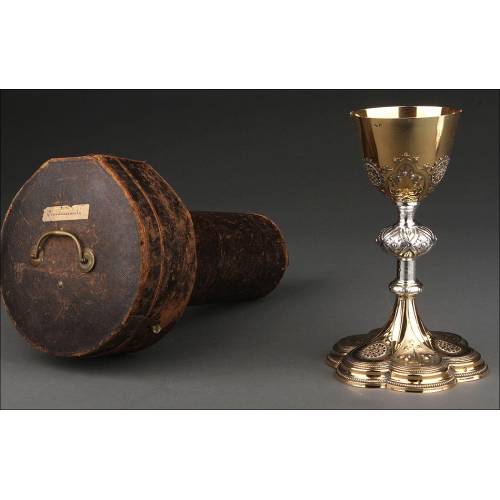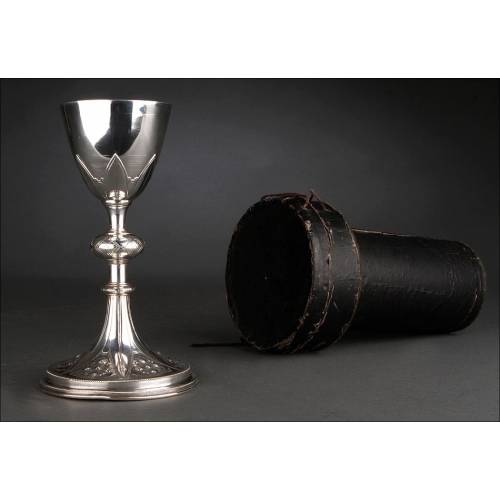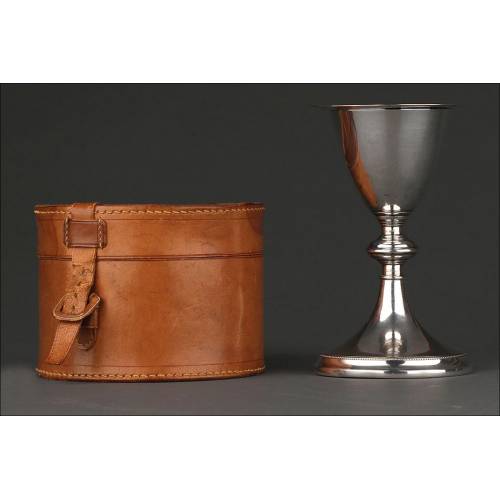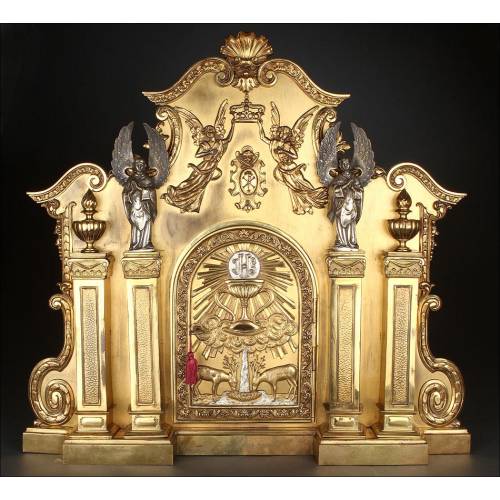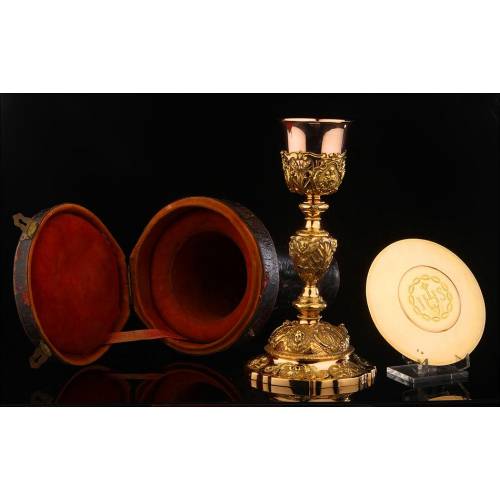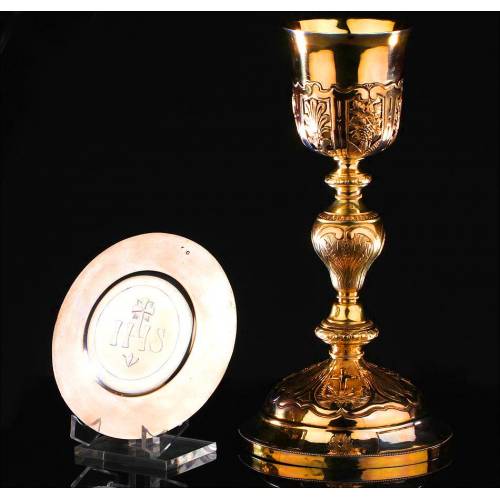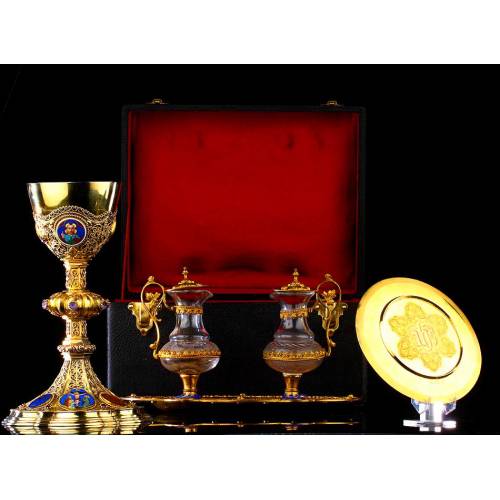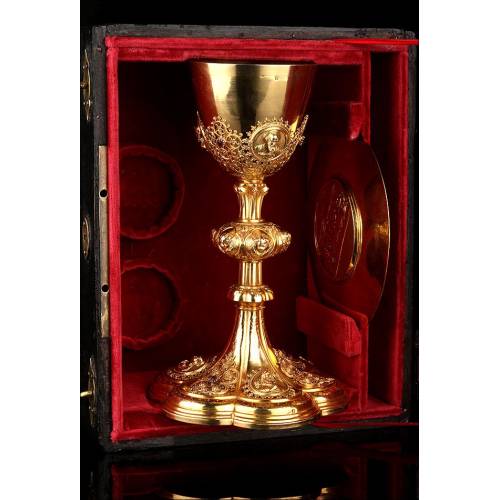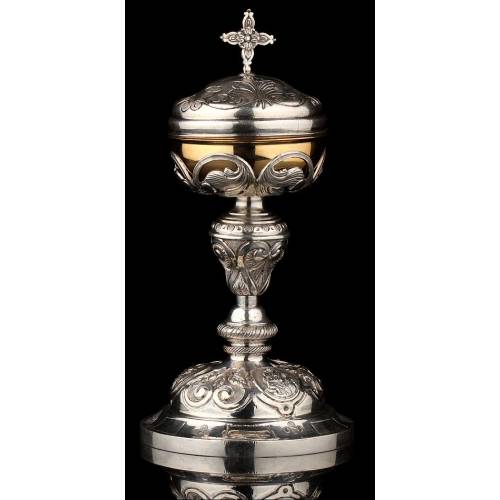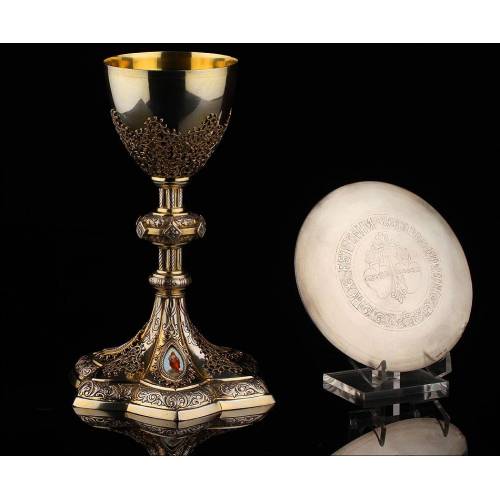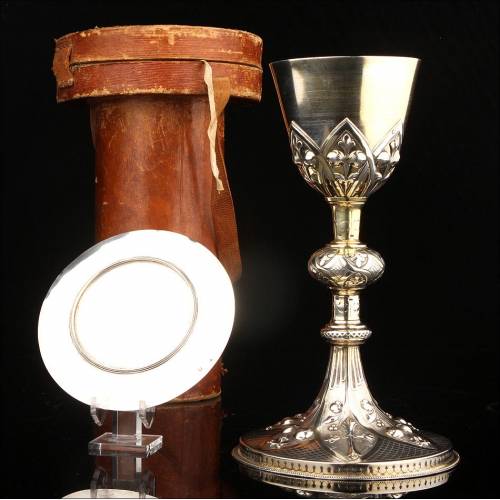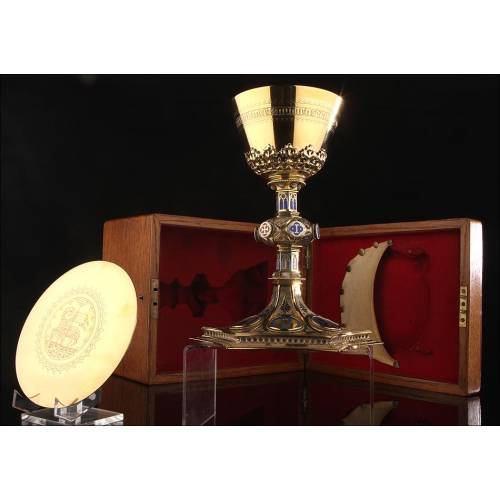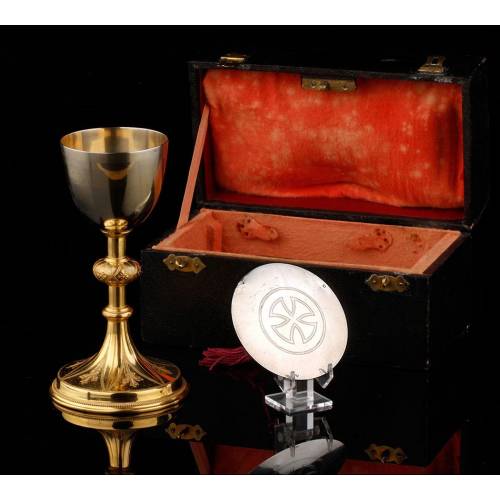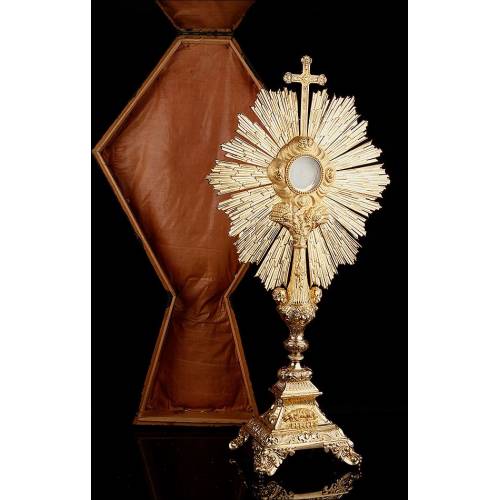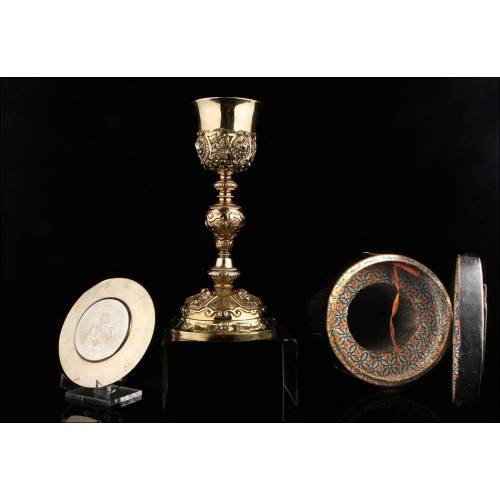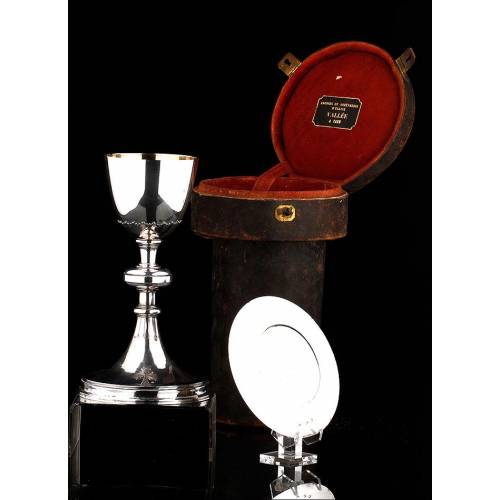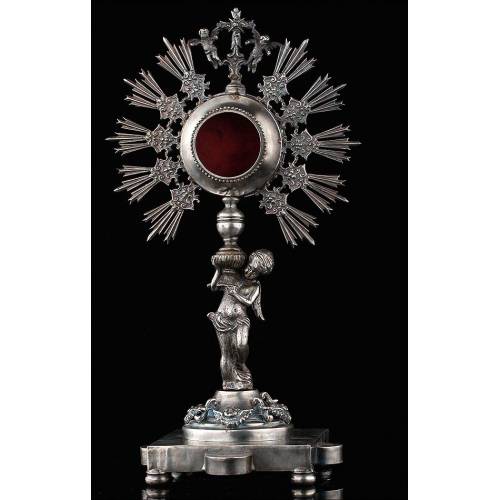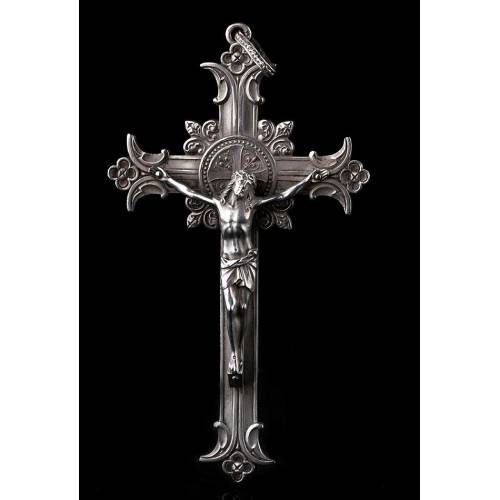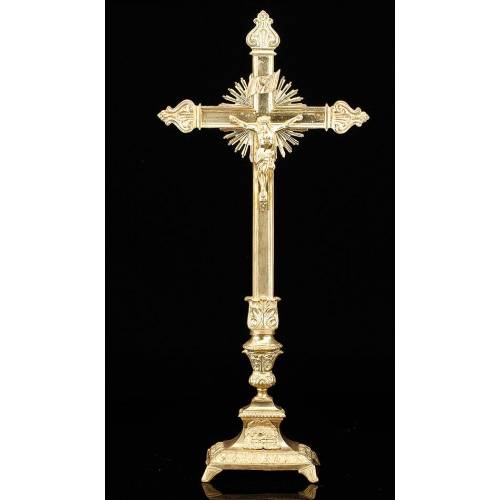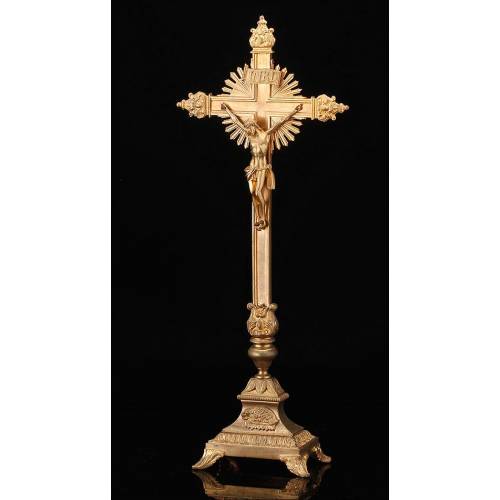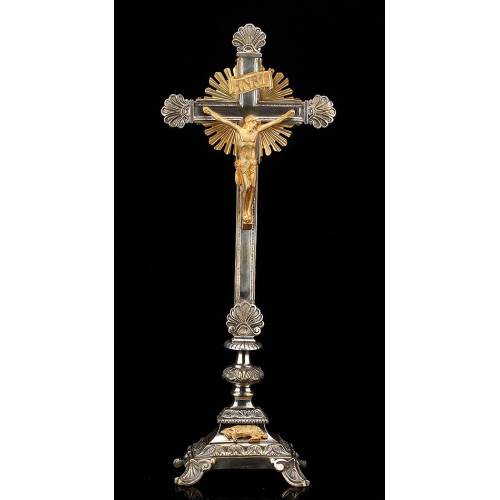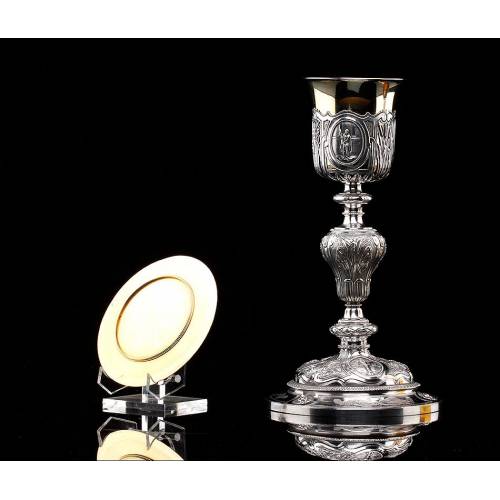C-528
Antique neo-Gothic ciborium in solid silver. Favier Frères. France circa 1900
Elegant and antique neo-gothic silver ciborium with contrast by Favier Frères. In magnificent state of preservation. Decorated with engravings and silver lattices.
Sold!
Amazing solid-silver ciborium of great neo-gothic style and fine decoration signed by Favier Frères and made in France circa 1900. This imposing piece of liturgical art stands out for its spectacular design, scattered with hand-engraved motifs and delicate details. The ciborium is in great condition and reveals the skillful hand of its makers, famous French goldsmiths whose work can be admired in different churches and cathedrals. This is quite a singular item for its complex engraved decoration which makes up a beautiful state-of-the-art piece. The ciboriums foot is ample and circular in shape. The edge bears the goldsmiths mark and the French silver hallmark. At the border we can see a hand-engraved medieval-style fringe; the main decoration is composed of engraved Catholic symbols. Among them we can see the Sacred Heart, an anchor, three dice, Judass bag, the lashes and the column (where Jesus Christ was beaten), some swords and initials. The stem is beautifully adorned with pointed windows, fine fringes and a big central node with medieval-style embossed motifs. The cup is supported by a lovely tracery base with cut openings through which we can see its silver surface. The cup itself is made of lean silver and bears the mentioned hallmarks near the edge. Over the cup, the striking cover is decorated with the same hand-engraved symbols that we appreciated at the foot. This piece is surmounted by a stylized an airy cross that crowns the ciborium. As magnificent as imposing, this antique solid-silver neo-gothic ciborium is a state-of-the-art piece bound to shine in a great collection. Measurements: Bases Width: 5.31 in / 13.5 cm. Cups Width: 3.93 in / 10 cm. Height: 10.43 in / 26.5 cm. Weight: 565 g.Favier Goldsmiths - History The hallmark with the word FAVIER corresponds to the company founded in 1824 by two brothers, François and Andre-Michel Favier. The workshop was located in Lyon. Both were great silversmiths; their workshop produced sacred-art articles such as chalices, patens, cruets and ciboria. Their works are considered state-of-the-art items and are usually found in the best collections and in the treasures of important churches and cathedrals. The pieces with the Favir mark are usually characterized by a profoundly religious feel; in the beginning they were clearly inspired by mediaeval images. With the trace of time the company followed more advanced artistic movements such as symbolism or modernism. The family business was active until 1976.
